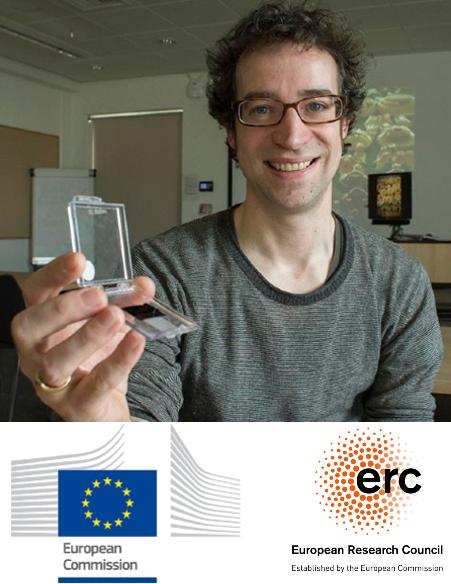
Lithium-ion batteries last longer and recharge faster. Commonly used for mobile telephones, laptops and electric vehicles, the demand has been growing since the 1990s and manufacturers are constantly testing ways to improve these batteries with new chemical combinations.
Dr Michael Volder’s (Dept of Engineering) is leading the research in the field of micro and nanotechnology, and development of materials with fundamentally new or improved functionality. These have the potential to revolutionise electronics, drug delivery, water purification, and energy storage.
The EU-funded MIGHTY project will optimise the roll-to-roll manufacturing process. Following a methodological approach, it will develop advanced nano and microstructures directly on a scalable roll-to-roll manufacturing platform. Based on this approach, material organisation will be optimised from the bottom-up, starting with the nanoscale chemical material composition, followed by the microscale particle morphology. Overall, the project will show how complex hierarchical battery electrodes can be manufactured with a continuous process to allow for precise control over the scaleable particle flow and assembly on Roll-to-Roll.
Dr Volder has been awarded €2m from the European Research Council.
Click here to read further.
Find out more about the NanoManufacturing group at www.nanomanufacturing.eng.cam.ac.uk.

